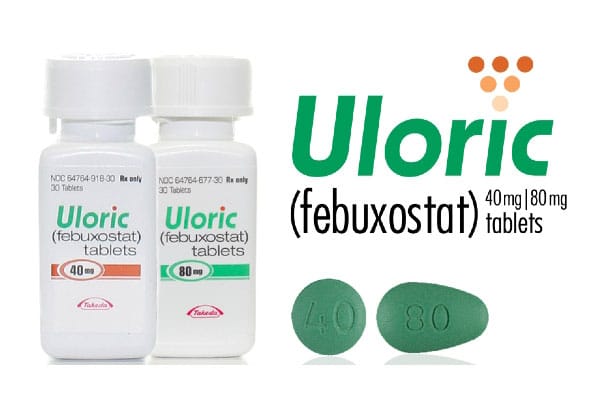Uloric, a widely-prescribed brand for Febuxostat, is a daily medication designed to prevent gout attacks. It works by inhibiting xanthine oxidase, an enzyme that produces uric acid. This helps in lowering uric acid levels in the body, thus preventing chronic gout and kidney stones from forming.
Before starting Uloric, it’s essential to inform your healthcare provider about any existing medical conditions, such as:
- Liver or kidney problems
- History of cardiovascular disease
- Pregnancy or plans to become pregnant
- Breastfeeding or planning to breastfeed
Below are the most common side effects associated with Uloric:
- Joint pain
- Nausea
- Skin rash
- Dizziness
More serious side effects include:
- Heart attack or other cardiovascular events
- Weakness
- Numbness in the limbs
- Shortness of breath
Uloric Dosing
Uloric is typically taken at doses of 40 mg or 80 mg once daily. The recommended starting dose is 40 mg per day. However, if the serum uric acid (sUA) level remains above 6 mg/dL after two weeks, the dosage can be increased to 80 mg once daily.
No dosage adjustment is necessary for patients with mild to severe hepatic impairment.
Uses of Uloric
Uloric, the generic name for Febuxostat, is a prescription medication that inhibits xanthine oxidase (XO) to reduce blood uric acid levels in adults suffering from gout. Uric acid is derived from substances called purines, which are found both in the body and in certain foods and beverages.
Alternative Medications
Here are some alternative medications to Uloric:
- Allopurinol – Used to treat high uric acid levels due to gout, kidney stones, and cancer treatment. It should not be used for asymptomatic high uric acid levels. If a rash occurs, discontinue use immediately and seek urgent medical attention.
- Zyloprim – Effective for treating gout, kidney stones, and preventing uric acid increase in patients undergoing chemotherapy for cancer.
